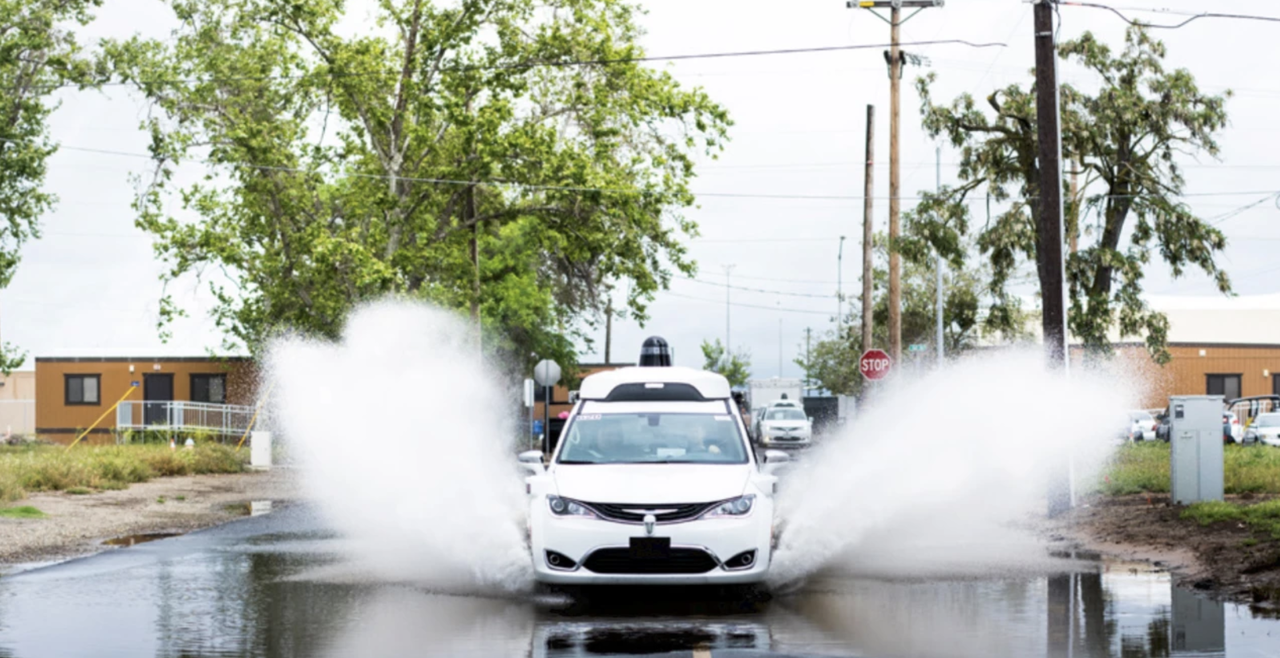Sorry, Elon.
If it wasn’t apparent already, the state of California has effectively confirmed that Alphabet’s Waymo is the official front-runner in the battle to bring self-driving taxis to market. To wit, TechCrunch reported on Tuesday that the California Public Utilities Commission has granted Waymo permission to carry passengers in its self-driving taxis – so long as the cars remain within a limited geographic area (in this case, the South Bay) and have safety drivers at the wheel, ready to take over should some mishap occur.
So far, Waymo is the only autonomous car company that has received permission to carry passengers as part of the state’s pilot program.
The California Public Utilities Commission today granted Waymo a permit on Tuesday to participate in the state’s Autonomous Vehicle Passenger Service pilot. Waymo confirmed the approval. A statement from a Waymo spokesperson provides some hints as to how and where the company intends to use this permit.
“The CPUC allows us to participate in their pilot program, giving Waymo employees the ability to hail our vehicles and bring guests on rides within our South Bay territory,” the spokesperson said in a statement. “This is the next step in our path to eventually expand and offer more Californians opportunities to access our self-driving technology, just as we have gradually done with Waymo One in Metro Phoenix.”
For these reasons, this permit is a much bigger milestone than the permissions Waymo and other autonomous car companies received to test-drive in areas around Phoenix, Ariz. and NorCal. It represents the first real concrete step toward a commercially viable passenger-carrying business.
The company also received an exemption allowing it to hire third-party contractors to work as safety drivers in its fleet (though per TC, the drivers will all participate in Alphabet’s training program).
Instead, this gives Waymo permission to use its self-driving vehicles – which are the Chrysler Pacifica hybrid minivans and eventually the Jaguar I-PACE electric vehicle – to transport people. The company still faces certain restrictions. It can’t charge for rides and the vehicles must have safety drivers behind the wheel. Waymo will also have to provide reports to CPUC with information on total passenger miles traveled and safety protocols.
The CPUC also gave Waymo an exemption that will allow the autonomous vehicle technology startup to use a third-party company to contract out safety operators. Waymo argued in a letter requesting the exemption that while the company’s “team of test drivers will include some full-time Waymo employees, operating and scaling a meaningful pilot requires a large group of drivers who are more efficiently engaged through Waymo’s experienced and specialized third-party staffing providers.”
Waymo isn’t the first company to receive this type of permit from the California Department of Motor Vehicles, but it is the first major contender in the race to build self-driving taxis to receive one.
Waymo isn’t the first to receive the permit. Back in December, Zoox scored the inaugural permit from the CPUC. Pony.ai and and AutoX, which started as an autonomous delivery company, also have received permits.
Waymo has been testing self-driving vehicles in California for years. But its first ride-hailing service began in Arizona, a state with fewer regulatory hoops for companies to jump through.
The permit comes with some important restrictions: Waymo can’t charge passengers for rides, cars must remain within the testing area, and safety drivers must accompany every ride.
But when Elon Musk predicted earlier this year that a fleet of 1 million Tesla robo taxis would be prowling the streets of the US by next year, well, most just laughed it off. But as Tesla continues to lag in the autonomous vehicle race (Tesla’s autopilot technology has resulted in the deaths of several unsuspecting Tesla owners, and who could forget how Uber shuttered its autonomous vehicle testing in Arizona after one of its cars accidentally killed a vagrant), the vaunted distinction of being the first to the robo-taxi market might belong to Alphabet instead.
via ZeroHedge News https://ift.tt/2LyUaoK Tyler Durden
